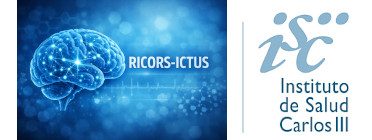Fernández-Gómez M, Gallo-Pineda F, Hidalgo-Barranco C et al. J Pers Med. 2023 Jul 21;13(7):1169. doi: 10.3390/jpm13071169. PMID: 37511782
Publicaciones
Citicoline May Prevent Cognitive Decline in Patients with Cerebrovascular Disease
Almeria M, Alvarez I, Molina-Seguin J et al. Clin Interv Aging. 2023 Jul 19;18:1093-1102. doi: 10.2147/CIA.S409994. eCollection 2023. PMID: 37489128
Pursuing precision in medicine and nutrition: the rise of electrochemical biosensing at the molecular level
Campuzano S, Barderas R, Moreno-Casbas MT et al. Anal Bioanal Chem. 2024 Apr;416(9):2151-2172. doi: 10.1007/s00216-023-04805-5. Epub 2023 Jul 7. PMID: 37420009
Fatty acid oxidation organizes mitochondrial supercomplexes to sustain astrocytic ROS and cognition
Morant-Ferrando B, Jimenez-Blasco D, Alonso-Batan P et al. Nat Metab. 2023 Aug;5(8):1290-1302. doi: 10.1038/s42255-023-00835-6. Epub 2023 Jul 17. PMID: 37460843
Randomised placebo-controlled clinical trial evaluating the impact of a new visual rehabilitation program on neuroadaptation in patients implanted with trifocal intraocular lenses
Piñero DP, Maldonado-López MJ et al. Int Ophthalmol. 2023 Nov;43(11):4035-4053. doi: 10.1007/s10792-023-02809-9. Epub 2023 Jul 18. PMID: 37464228
Influence of non-osteoporotic treatments in patients on active anti-osteoporotic therapy: evidence from the OSTEOMED registry
Coco-Martín MB, Leal-Vega L, Blázquez-Cabrera JA et al. Eur J Clin Pharmacol. 2023 Oct;79(10):1333-1339. doi: 10.1007/s00228-023-03544-x. Epub 2023 Jul 29. PMID: 37515605
Outcome assessment of a complex mental health intervention in the workplace. Results from the MENTUPP pilot study
Tsantila F, Coppens E, De Witte H et al. Int Arch Occup Environ Health. 2023 Oct;96(8):1149-1165. doi: 10.1007/s00420-023-01996-3. Epub 2023 Jul 14. PMID: 37452149
Bacterial molecular machinery in the Martian cryosphere conditions
Muñoz-Hisado V, Ruiz-Blas F, Sobrado JM et al. Front Microbiol. 2023 Jul 26;14:1176582. doi: 10.3389/fmicb.2023.1176582. eCollection 2023. PMID: 37840745
Neuroimaging in small vessel disease
Mena Romo L, Gómez-Choco M. Hipertens Riesgo Vasc. 2023 Jan-Mar;40(1):25-33. doi: 10.1016/j.hipert.2022.05.005. Epub 2022 Jun 5. PMID: 35676196
Consensus Recommendations for Standardized Data Elements, Scales, and Time Segmentations in Studies of Human Circadian/Diurnal Biology and Stroke.
Saver JL, Klerman EB, Buchan AM et al. Stroke. 2023 Jul;54(7):1943-1949. doi: 10.1161/STROKEAHA.122.041394. Epub 2023 Jun 5. PMID: 37272394

